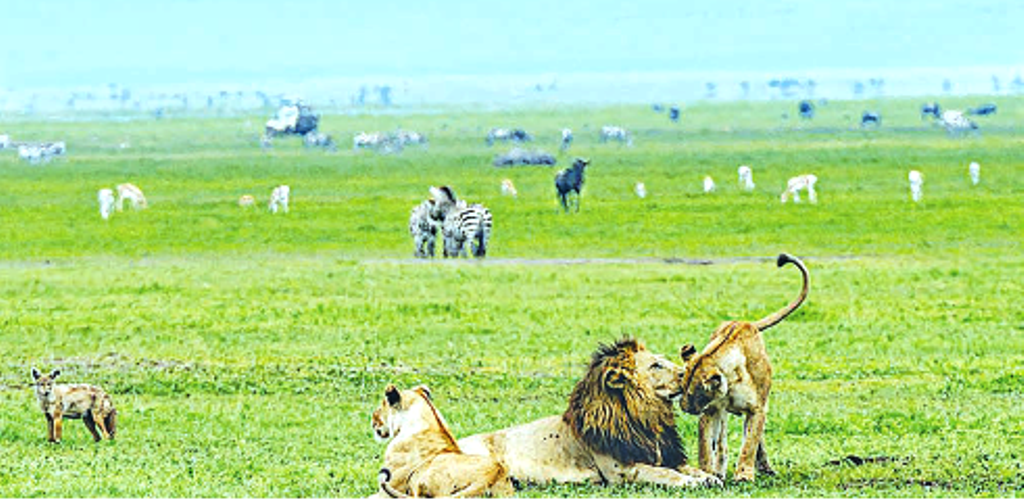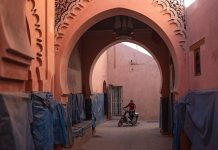AfricaPress-Tanzania: THOUGH conservation of biological diversity is perceived as the backbone of tourism which creates significant economic impact on ordinary national citizens, former president, Benjamin Mkapa had a different perception on this.
He believed that absence of conservation policy and accompanying programmes can have a disastrous impact on the nation’s ecosystems and weather prospects. Both can accrue from the nation’s land use policy, thus affect the sustainability of its land management system.
Delivering a key note address at the Sixth African Leaders Forum held in Dar es Salaam between August 29 and 30 August, 2019, Mr Mkapa noted that to achieve vibrant economic growth, it is necessary to have sustainable land management in place.
The forum was under the theme ‘Promoting Good Natural Resource Management for Socio-economic Transformation in Africa’. The topic for the event touched the growth prospects of many African countries dwelling on three sub titles –Conservation, Land Management, and Climate Change.
The United Nations defines sustainable land management as the use of land resources, including soils, water, animals and plants for the production of goods to meet changing human needs.
It envisages the adoption of land use systems that through appropriate management practices enable land users to maximize the economic and social benefits from the land while maintaining or enhancing the ecological support functions of the land resources.
Mr Mkapa was of the view that sustainable land management involves a holistic approach to achieving productive and healthy ecosystems by integrating social, economic, physical and biological needs and values contributing to sustainable and rural development.
The realisation of such a land management paradigm calls for involvement and partnership of land users, technical experts and policy makers in government and political parties. He stated that increased food production in countries where there is a minimum of industrialisation– that is to say much of Africa – means population pressure on the land.
Basic agricultural transformation means wading into forest land and excessive land use. The result is poor land management and agricultural practices, landslides and over flooding. While we must put more hoes and tractors to the land it is necessary to bear in mind that the land is finite, and so are land related assets.
“I dare to suggest that much of the present and planned growth is not taking enough consideration of the region’s human and natural resources base. Increasing demands are placed for land and other natural resources and effecting on nature and wildlife reserves.
In this way Development is made to pit people and nature/ wildlife reserves in competition. Under this strategy land becomes degraded and less productive, tourism resources become decimated, people are impoverished, the heritage of national and animal history are consigned to electronic archives.
Ultimately both people and wildlife will suffer,” he noted. He added that; “Africa’s natural capital must be preserved and enriched. Poorly planned agricultural settlements, infrastructure development, and resource extraction must not drive the degradation of forests, rivers and grasslands.
For the resulting habitat loss and fragmentation threaten ecosystem goods and services upon which people and wildlife both depend. One sure way of slowing down deforestation is afforestation – planting new trees.
There can be a serious and concerted programme of planting new tress,” In September 2006 the UNFCC Secretariat convened a conference on Climate Change adaptation attended by 33 African Governments and a number of international agencies and civil society groups.
The meeting highlighted the need for greater monitoring and early warning of climate changes and severe weather events like droughts and floods, and called for integration of long-term adaptation strategies into development and disaster – preparedness programmes.
At the conference a Sierra Leonean climate scientist, Oguniade Davidson observed that Africa never enjoyed the financial benefits generated by putting greenhouse gases up there through the industrial revolution of the developed countries in the first place it never accumulated the wealth to be able to bear the shocks.
“So now they have to cope with the effects of a situation they did not create with resources they do not have and global warming is a “double loss for countries in Africa,” argued Mr Davidson. Climate change manifests itself and is felt in different ways.
It is occasioned by global warming and excessive depletion of renewable natural resources – land fertility, deforestation, inland waters recession. Tanzania is a good example. 70 per cent of the population – peasant farmers and livestock keepers – relies on climate change and global warming. As the economy – and population – grows, renewable natural resources are declining.
Over harvesting, land degradation and unsustainable use of renewable natural resources see to increase in the damage. Mr Mkapa argued that it is estimated that 8,770 square kilometers disappear every year.
If this trend continues by 2075 there will be no forests in Tanzania!! In the last 15 years some 130,000 km2 of land has been deforested; reforesting them is possible by tree planting and it is possible because their soils are not yet badly degraded.
“Forests provide many economic and environmental benefits. They prevent soil erosion and help maintain water resources. Forestry related activities can offer opportunities for jobs and skills development, for youth and women. We can protect natural forests and plant new forests we can create jobs as answer to our growing population,” the former president asserted.
At the 39th Summit of the SADC in Dar es Salaam two weeks early August, 2019, the then Chairman of the community, President Hage Geingob of Namibia pointed out the immense damage which was caused by weather changes in the region.
“Climate Change is real and our region can attest to this fact. Between January and April 2019, the region faced several weather related phenomenon, namely, Tropical Cyclone. Desmond, Enawo, Idai and Kenneth. As a result of these events, we witnessed extensive flooding in Comoros, Mozambique, Tanzania, Madagascar, Malawi and Zimbabwe.
Heavy rains also affected Kwazulu Natal, in South Africa,” he stated. Mr Mkapa advocated the proclamation of renewal of the commitment to preserve national parks, nature reserves and wild lands as a national and world heritage. They can contribute to national income and job creation.
Encroachment should not be entertained or accommodated. But also, flora and fauna are important factors to realising national development aspirations.
“Communities must be incorporated in the programmes for sustainable management of forests, and carbon credits there-from should devolve to their benefit. The UN Programme for Deforestation and Forest Degradation should devolve incentives to them for adaption to Land Use in financial terms.
Government and communities must collaborate always in the introduction of climate sensitive agriculture and sustainable energy solutions. Communities must be sensitised and empowered to secure their water resources. Water user associations must be encouraged; so also, must be rain water harvesting,” Mr Mkapa affirmed. He added; “African countries should put in place, by policy and practice, a Land Use policy.
This should spell out with a minimum of equivocation rights of occupancy and an adjudication system of resolution of land disputes. These should spell out clear guidelines and procedures for determination and enforcement. Simultaneously they should adopt an ecosystem-based adaptation for rural resilience.”







